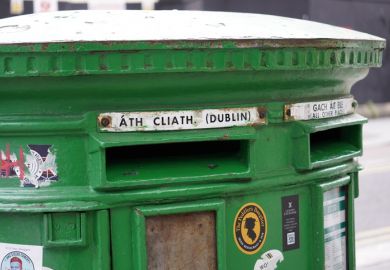With his bifocals teetering at the end of his nose, his face fringed by white hair and a white beard, Michael Kennedy seems the quintessential English literature professor. He even keeps tabs on the time with a pocket watch.
But there’s something very different about his class at the University of Saskatchewan, in west-central Canada, that is evident as soon as he begins it with a recap of the local sport scores, including the university ice hockey team’s win against a rival, the University of British Columbia.
Ice hockey, Canada’s official winter sport and the nation’s obsession, is the conduit through which Professor Kennedy teaches this course, entitled “hockey in Canadian literature”. It is an example of how to reach otherwise reluctant students through something that they are already enthusiastic about.
“The vehicle of hockey really opens the door for many people who would otherwise say, ‘Whoa, an English class,’” says Professor Kennedy. “They’re not threatened. If they didn’t like English in high school, this makes it interesting for them. It’s common ground.”
It is also clearly fun for Professor Kennedy, a one-time sports journalist who never misses a home game involving the university hockey team, was named fan of the year in 2006-07, and wrote a book about the history of University of Saskatchewan hockey that was shortlisted in the people’s choice division of the Saskatchewan Book Awards.
“I keep finding joy in what I do,” says Professor Kennedy. “That’s what keeps me teaching. My students say to me, ‘You really like doing this’, and I think, ‘My god, what are the other professors like? Are they just dragging themselves through the motions?’”
So effective is his approach that the course has generated a waiting list every time that it has been offered.
All the reading is about hockey, much of it from a collection that Professor Kennedy edited called Words On Ice, whose introduction was written by a former head coach of the Calgary Flames. Even the examples on the grammar test are hockey-related.
“Analysing a story is like analysing a hockey game,” Professor Kennedy tells his students, many of whom wear athletic caps and T-shirts.
By illustration, he remembers going to a hockey game with a woman who was not Canadian. “She just saw people skating around,” says Professor Kennedy, who tells his students that knowing the rules and strategy of hockey is an example of the same kind of deep understanding required to recognise the subtle messages of writing.
The story that the class are focused on is about a father’s pride when his son almost scores a goal in a children’s hockey league. Professor Kennedy compares it with something that his students already have detailed knowledge of: the dynamic between Canadian hockey great Wayne Gretzky and his father, Walter, who built a hockey rink in the family’s backyard when Gretzky was just two.
Teaching literature in this way “works for me and it works for many of the students”, Professor Kennedy says after the class is over. “They already know about the hockey, but they can also learn how to evaluate a short story and how to think.
“I can bring some knowledge to the topic, and enthusiasm. And you can’t deny that it’s part of who we are as Canadians.”
POSTSCRIPT:
Print headline: Ice hockey leads to thaw towards the classics
Register to continue
Why register?
- Registration is free and only takes a moment
- Once registered, you can read 3 articles a month
- Sign up for our newsletter
Subscribe
Or subscribe for unlimited access to:
- Unlimited access to news, views, insights & reviews
- Digital editions
- Digital access to THE’s university and college rankings analysis
Already registered or a current subscriber?






